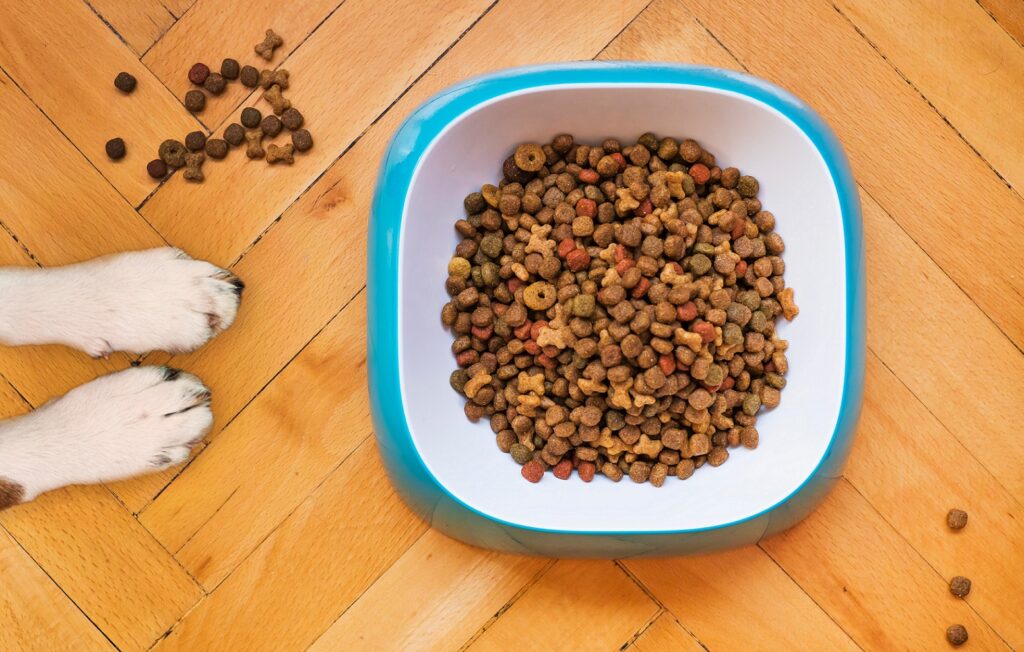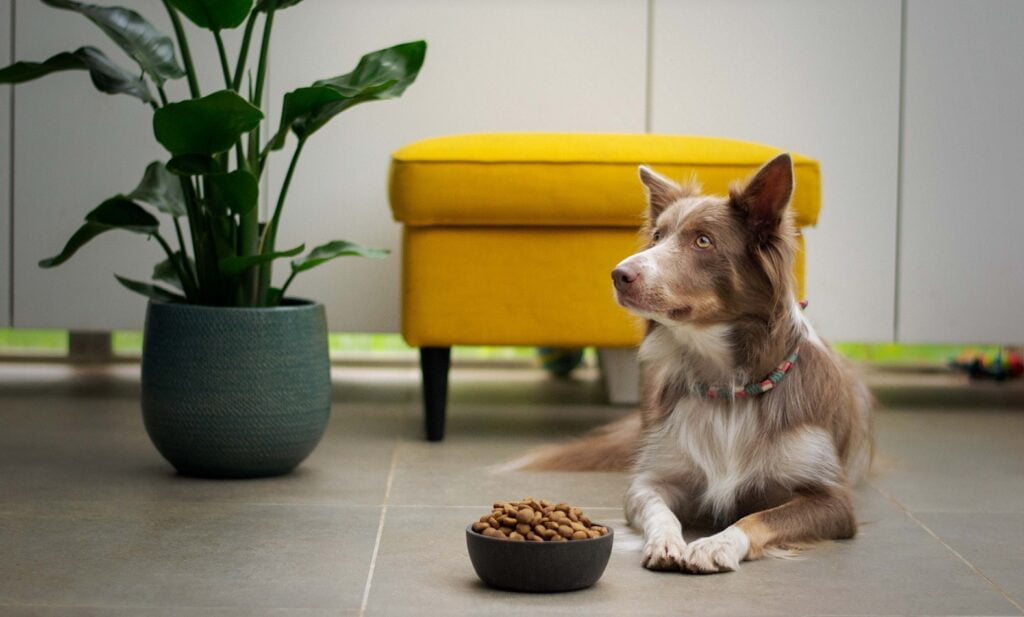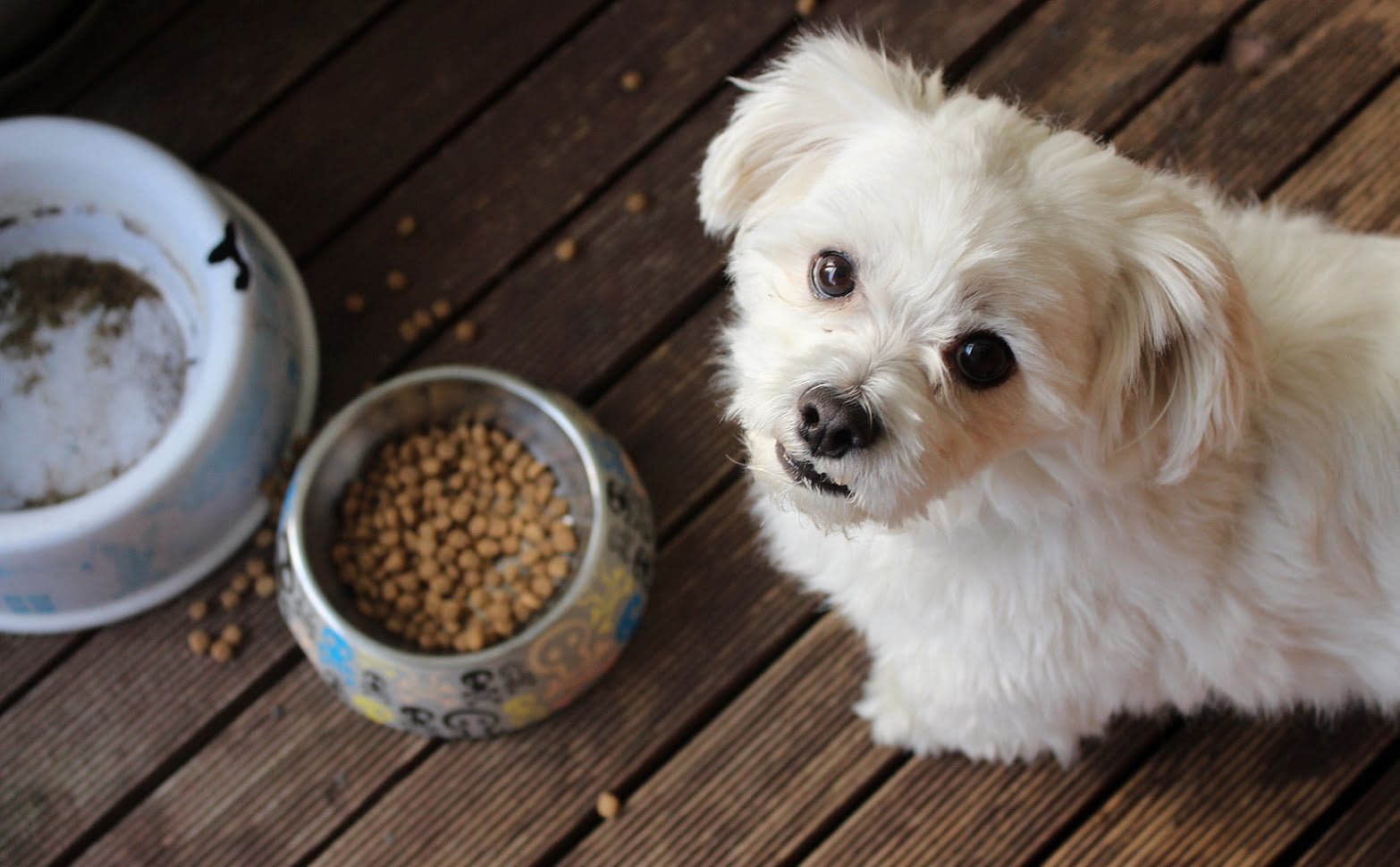Choosing the right dog food can be a dilemma, but by educating ourselves and making informed decisions, we can provide our furry friends with the nutrition they need to live their best lives.
Dogs are often considered as man’s best friend. They are loyal, playful, and affectionate creatures that bring joy and happiness to our lives.
As pet owners, we want to ensure that our furry friends are happy, healthy, and well-fed.
However, with so many different types of dog food available in the market, it can be overwhelming to decide which one to choose.
In this article, we will discuss some common questions about dog food and help you make an informed decision about what to feed your furry friend.
FAQs on Dog Food: Expert Answers to Your Queries
Dog food is a type of food formulated and intended for consumption by dogs. It typically contains a balanced and complete combination of nutrients, vitamins, and minerals necessary for a dog’s health and wellbeing.
Feeding your furry friend can be a confusing and overwhelming task, especially with so many different types of dog food available in the market.
To help you make informed decisions about your dog’s diet, we’ve put together a list of frequently asked questions about dog food, with expert answers to your queries.

Q: What are the different types of dog food available?
The most common types of dog food are dry kibble, wet/canned food, semi-moist food, and raw food. Each type has its own advantages and disadvantages, and the best choice depends on your dog’s needs and preferences.
Q: How do I choose the right dog food for my furry friend?
Look for dog food that meets your dog’s nutritional requirements and fits your budget. Consider your dog’s age, breed, activity level, and health condition, and choose dog food that is appropriate for their specific needs.
Q: Is homemade dog food better than commercial dog food?
Homemade dog food can be a good option if it is nutritionally balanced and meets your dog’s specific needs. However, it can be difficult to ensure that homemade dog food is nutritionally complete and balanced. Commercial dog food, on the other hand, is specifically formulated to meet the nutritional needs of dogs.
There is a similar question below asking on how to make it, please check “How to make healthy homemade dog food?“.
Q: Should I choose grain-free dog food for my dog?
Grain-free dog food is not necessarily better for all dogs. While some dogs may benefit from a grain-free diet, others may not. Consult with your veterinarian before making any dietary changes.
Q: How much should I feed my dog?
The amount of food your dog needs depends on their age, breed, activity level, and overall health. Generally, most dogs require about 1 to 2 cups of food per day, split into two meals. Follow the feeding guidelines on the dog food package and adjust the amount as needed based on your dog’s individual needs.
Q: Can I give my dog human food?
While it is generally not recommended to give your dog human food as their primary diet, it is possible to give them certain human foods in moderation as a treat or supplement to their regular diet.
Some examples of safe human foods for dogs include lean meats, plain cooked vegetables, fruits (without seeds), and certain grains like brown rice.
However, it is important to avoid giving them certain foods like chocolate, onions, garlic, grapes, and avocado, which can be toxic to dogs. It is always best to consult with your veterinarian before adding any new human foods to your dog’s diet.
Q: How often should I feed my dog?
It depends on your dog’s age and individual needs. Puppies and young dogs typically need to be fed more often, while adult dogs can be fed once or twice a day. Consult with your veterinarian to determine the best feeding schedule for your dog.
Q: Should I switch my dog’s food often?
It is not necessary to switch your dog’s food often, but it can be beneficial to offer some variety in their diet. If you decide to switch your dog’s food, do so gradually over several days to avoid digestive upset.
Q: Can my dog be allergic to certain types of dog food?
Yes, some dogs may have food allergies or intolerances to certain ingredients in their dog food. Common allergens include beef, dairy, chicken, and wheat. If you suspect your dog has a food allergy, consult with your veterinarian.
Q: Can I give my dog supplements to enhance their diet?
Yes, you can give your dog supplements to enhance their diet, but it’s important to consult with your veterinarian first. While supplements can provide additional nutrients and health benefits, giving your dog too many or the wrong type of supplements can be harmful. Your veterinarian can help you determine which supplements, if any, are appropriate for your dog based on their individual health needs and dietary requirements.
Q: Should I feed my dog a vegetarian or vegan diet?
Dogs are naturally omnivores and can thrive on a balanced diet that includes both animal and plant-based proteins. While it is possible to feed dogs a vegetarian or vegan diet, it can be challenging to ensure that they are receiving all the nutrients they need, particularly essential amino acids, vitamins, and minerals. Consult with your veterinarian before feeding your dog a vegetarian or vegan diet.
Q: How can I tell if my dog is overweight?
You can tell if your dog is overweight by feeling their ribs and looking at their body shape. If you can’t feel your dog’s ribs, or if their body shape is round or oval rather than hourglass-shaped, they may be overweight. Consult with your veterinarian to determine your dog’s ideal weight and how to help them achieve it.
Q: What happens if my dog eats chicken feed?
If your dog eats a small amount of chicken feed, they will likely be fine. However, if they consume a large amount, it could lead to digestive upset, such as vomiting or diarrhea.
Chicken feed is not toxic to dogs, but it is not designed to meet their nutritional needs and can cause digestive issues. If your dog has eaten chicken feed and is showing signs of illness, consult with your veterinarian.
Q: What can I add to my dog’s food to stop them from eating poop?
There are a few things you can try adding to your dog’s food to discourage them from eating poop.
One option is to add a small amount of canned pumpkin to their food, as the fiber can help regulate their digestion and make their poop less appealing to eat.
Another option is to add a commercial product to their food that is specifically designed to deter dogs from eating poop, such as For-Bid or NaturVet Coprophagia Deterrent.
It’s important to note that this behavior can also be caused by underlying medical issues or behavioral problems, so if the behavior persists, it’s best to consult with your veterinarian for further guidance.
Q: How long does it take for a dog to digest their food?
The digestion time for dogs varies depending on several factors, such as their size, age, and the type of food they eat. In general, it can take anywhere from 8 to 24 hours for a dog to fully digest their food.
However, some foods, such as raw meat or bones, may take longer to digest. Additionally, if a dog is experiencing digestive issues, such as diarrhea or constipation, it may take longer for their food to pass through their system.
Q: When should I switch my dog to adult food?
The appropriate time to switch your dog to adult food can vary depending on their breed, size, and individual needs. In general, small breeds can be switched to adult food around 9-12 months of age, while larger breeds may need to stay on puppy food until they are 12-18 months old. However, it’s important to consult with your veterinarian to determine the best time to switch your dog to adult food. They can also recommend a specific type of food that meets your dog’s nutritional needs.
Q: Why won’t my dog eat his food but will eat treats?
There can be various reasons why your dog is not eating his food but is willing to eat treats.
Some possible reasons include dental problems, food aversion, health problems, changes in their environment or routine, picky eating habits, or an unappetizing diet. Some dogs may also experience stress or anxiety, which can affect their appetite.
If your dog suddenly stops eating or shows other signs of illness, it’s important to consult with your veterinarian. They can help identify any underlying medical conditions and recommend a plan to improve your dog’s eating habits.
In some cases, you may need to experiment with different types of food or feeding schedules to find what works best for your dog.
Q: Can I feed fish food to dogs?
No, it is not recommended to feed fish food to dogs. Fish food is formulated specifically for fish and may not contain the necessary nutrients that dogs need to stay healthy. Additionally, some types of fish food may contain ingredients that are harmful to dogs, such as high levels of protein or additives like preservatives or artificial colors.
If you’re looking for alternative sources of protein for your dog, there are many high-quality dog food options available that are specifically formulated to meet their nutritional needs. It’s always best to consult with your veterinarian before making any changes to your dog’s diet.
Q: What should I do if my dog eats cat food?
If your dog eats cat food, it’s unlikely to cause any serious harm if it’s a one-time occurrence. However, if your dog regularly eats cat food, it can lead to nutritional imbalances that can harm their health. Cat food typically contains higher levels of protein and fat, which can cause digestive upset or lead to obesity in dogs.
If you catch your dog eating cat food, try to discourage them from doing so in the future by keeping the cat food out of reach. You can also try feeding your pets in separate rooms or at different times to prevent your dog from eating the cat’s food. If your dog regularly eats cat food or exhibits any signs of illness after eating it, it’s best to consult with your veterinarian for guidance.
Q: Which wet dog food brands do vets recommend?
The wet dog food brands that vets recommend can vary depending on your dog’s specific nutritional needs and health concerns. Some common brands that are recommended by vets include Hill’s Science Diet, Royal Canin, and Purina Pro Plan.
These brands typically offer high-quality, balanced nutrition that can support your dog’s overall health and well-being. However, it’s important to consult with your veterinarian to determine the best wet dog food for your individual dog, as their nutritional needs can vary based on their age, breed, and other factors.
Q: Why is my dog throwing up undigested food?
There are several reasons why a dog may vomit undigested food, including:
1. Eating too quickly – Dogs that eat too quickly may swallow large pieces of food, which can be difficult for their stomachs to digest and may cause vomiting.
2. Food intolerance or sensitivity – Some dogs may have a sensitivity or intolerance to certain ingredients in their food, which can cause vomiting and other digestive issues.
3. Gastrointestinal obstruction – If a dog ingests a foreign object, such as a toy or bone, it can cause an obstruction in their gastrointestinal tract, which may lead to vomiting.
4. Inflammatory bowel disease – Dogs with inflammatory bowel disease may experience vomiting, diarrhea, and other digestive issues.
If your dog is vomiting undigested food regularly, it’s important to consult with your veterinarian to determine the underlying cause and develop a treatment plan. In some cases, dietary changes or medication may be necessary to address the issue and prevent further vomiting.
Q: How long does a dog have diarrhea after a food change?
In most cases, a dog may experience diarrhea for a few days after a food change as their digestive system adjusts to the new diet. However, the duration of diarrhea may vary depending on the dog’s individual response to the new food.
If diarrhea persists for more than a few days or is accompanied by other symptoms, such as vomiting or lethargy, it’s important to consult with your veterinarian to rule out any underlying health issues.
Q: How many cups of food should I feed my dog?
The amount of food your dog needs depends on several factors, such as their age, weight, activity level, and overall health. A general guideline is to feed adult dogs 1 to 2 cups of food per day, divided into two meals.
However, this may vary depending on your dog’s specific needs. It’s best to consult with your veterinarian to determine the appropriate amount of food to feed your dog based on their individual requirements.
Q: How much does dog food cost?
The cost of dog food can vary widely depending on factors such as brand, quality, and type of food (wet or dry). In general, the cost of a high-quality dog food can range from $1 to $3 per pound, with wet food typically costing more than dry food.
Lower quality or budget dog foods may be less expensive, but they may also contain lower quality ingredients and provide less nutrition for your dog. It’s important to choose a dog food that provides balanced nutrition and meets your dog’s individual needs, regardless of cost.
Q: How to make healthy homemade dog food?
Here’s an example recipe for homemade dog food that meets the nutritional needs of adult dogs, but please note that you should consult with a veterinarian or veterinary nutritionist before making any significant changes to your dog’s diet.
Ingredients:
• 2 lbs. ground turkey or chicken
• 1 cup cooked brown rice
• 1 cup cooked sweet potato
• 1 cup chopped carrots
• 1 cup chopped green beans
• 1 tbsp. olive oil
• 1 tsp. dried parsley
Instructions:
1. In a large pot, cook the ground turkey or chicken over medium heat until browned.
2. Add in the cooked brown rice, sweet potato, carrots, and green beans, and mix well.
3. Drizzle the olive oil over the mixture and add in the dried parsley.
4. Cook for an additional 5-10 minutes until the vegetables are tender and the mixture is heated through.
5. Allow the mixture to cool before serving. Store any leftovers in an airtight container in the refrigerator for up to three days.
Again, please note that this recipe is meant as an example and should be customized to meet your dog’s individual nutritional needs.
Dog Food Decoded
Choosing the right dog food for your furry friend can be a daunting task, but it’s an important one for their overall health and well-being.
By understanding the common questions and concerns that dog owners have about their pet’s diet, you can make an informed decision about what to feed your dog.

Remember to consult with your veterinarian if you have any specific concerns or questions about your dog’s diet, as they can offer personalized recommendations based on your dog’s individual needs.
With the right diet, your dog can enjoy a healthy and happy life by your side.
Also Read: 10 Best Exotic Pets: An Ownership Guide (With Pictures)
Well, what do you think about the article?
Did you enjoy reading “The Dog Food Dilemma: 25 Common Questions Answered“? If so, please comment down below. We would love to hear your thoughts about this Q&A.
To see more content like this check the others section of Money For My Beer.

Chief Editor and Website Owner.
Hey, I’m Ryan, a software guy and the owner of Money For My Beer. I’m the one making sure all our posts on the site are awesome.
I usually handle tech stuff that might not be super interesting to everyone, like programming enterprise software, apps, games, and websites. Cool stuff, right? I also help clients with SEO and sometimes create games.

